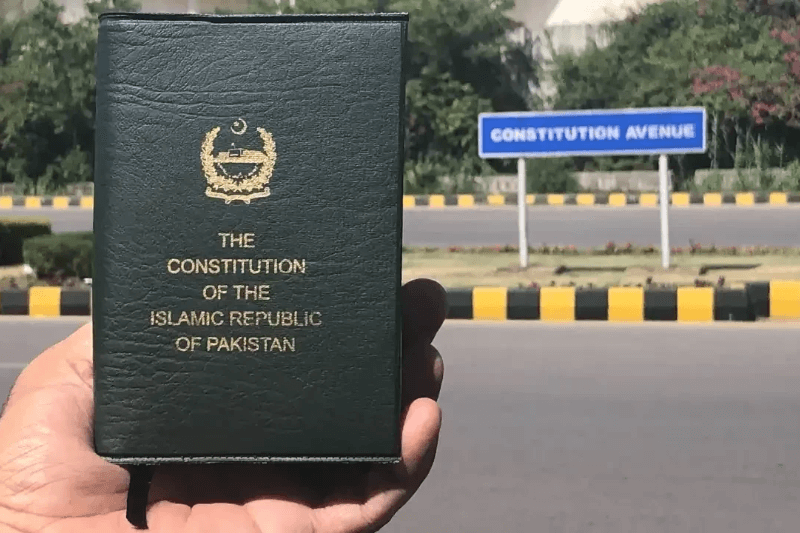
(Aaj English TV,what are the key highlights of 26th constitutional amendment bill 2024
The 26th Constitutional Amendment Bill 2024, which has been highly anticipated by the citizens, was presented in the Senate by Federal Law Minister Azam Nazir Tarar on Sunday. This bill includes important modifications aimed to enhance the governance and legal structures in Pakistan. Let’s dive into some of the Key highlights of the 26th Constitutional Amendment Bill of 2024.
Key Highlights
Right to a Healthy Environment
A new Article 9A has been introduced, which establishes the fundamental right of every citizen to enjoy a clean, healthy, and sustainable environment.
Elimination of Interest
A change to Article 38(f) requires the total eradication of riba (interest) by January 1, 2028.
Judicial Independence and Protection
The revision to Article 48(4) indicates that any advice provided to the President by the Cabinet or Prime Minister is not subject to debate in any court or tribunal. Article 81 contains guidelines for financing judicial institutions such as the Judicial Commission of Pakistan and the Supreme Judicial Council.
Judicial Performance Evaluation
Article 175A has been updated to implement a performance evaluation system for judges in the High Court for promoting accountability and tackling inefficiencies.
Supreme Court Appointment Criteria
Revised Article 177, states that the eligibility for the Supreme Court candidates need to have experience as a High Court judge for a minimum of five years or to have 15 years of practice in the High Court and Supreme Court.
Judicial Appointment Process
Article 175A has been revised to alter the makeup of the Judicial Commission tasked with appointing judges to the Supreme Court. A Special Parliamentary Committee will choose the Chief Justice from the three judges with the highest seniority. This committee will consist of members from both the National Assembly and the Senate, ensuring that representation is proportionate to their parliamentary strength, with final appointments requiring a two-thirds majority vote.
Election Organization
The revision to Article 81 assigns funds for organising and carrying out elections for the National Assembly, Senate, Provincial Assemblies, and local governing bodies.
Judicial Accountability
Provisions have been introduced for yearly performance assessments of High Court judges by the Judicial Commission. If performance is found lacking, there will be chances for improvement but if there is no improvement, the issue will be transferred to the Supreme Judicial Council.
Tenure of Chief Justice
The amendment to Article 179 restricts the tenure of the Chief Justice to three years, regardless of age, with a compulsory retirement upon finishing the term.
The purpose of these amendments is to improve the legal governance, ensure judicial accountability and to protect environmental rights in Pakistan. They also seek to limit the suo motu powers of the Supreme Court by establishing a three-year term for the Chief Justice of Pakistan (CJP), and to allow the Prime Minister to select the next CJP from the three most senior judges of the Supreme Court.



